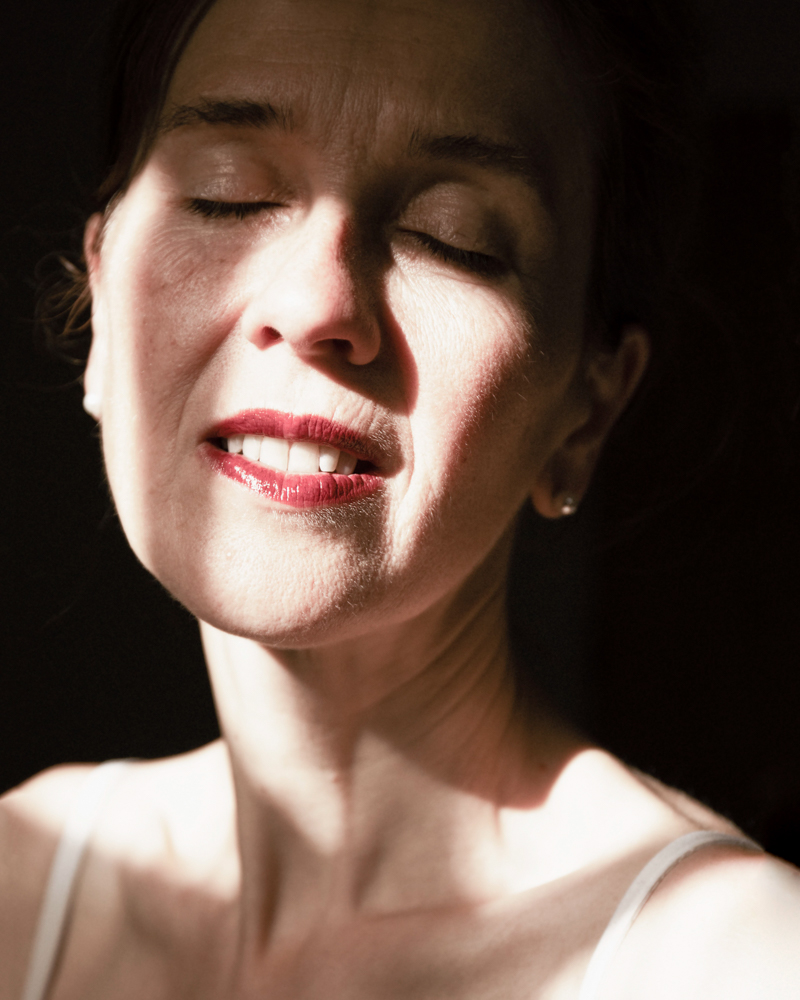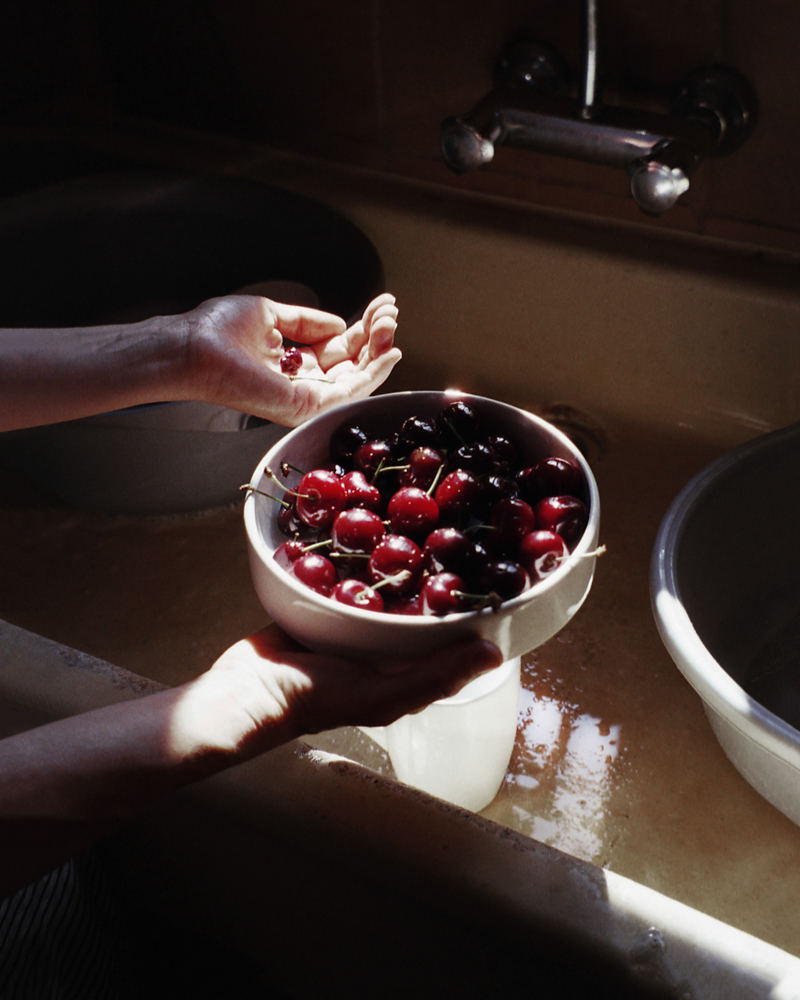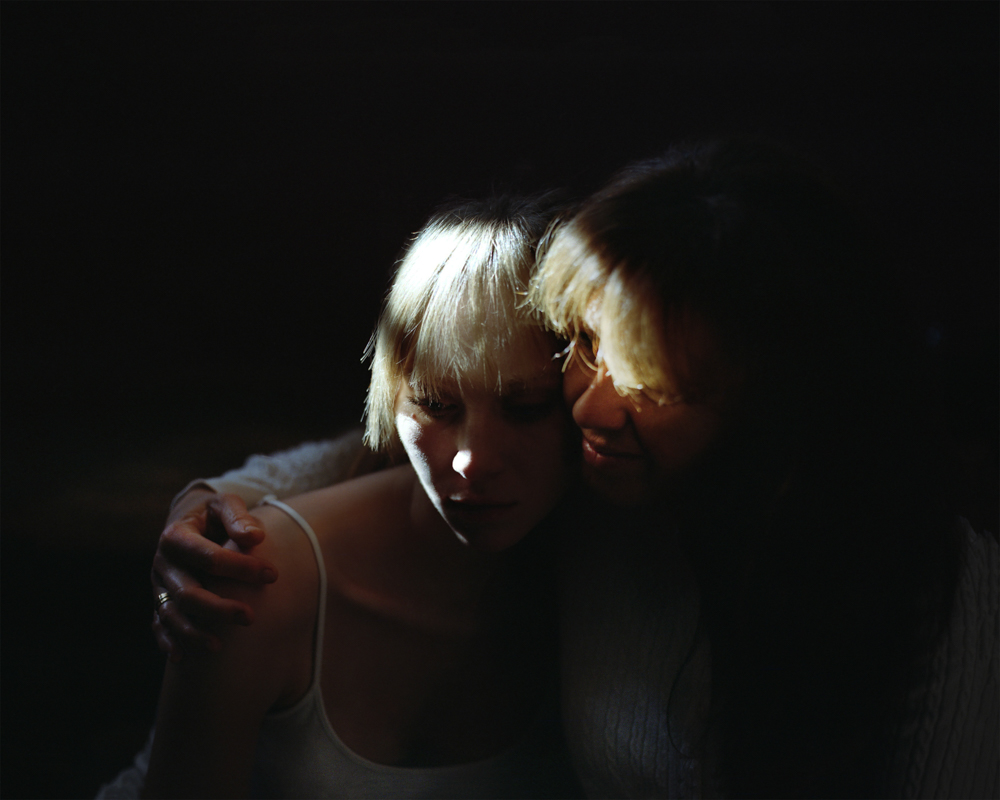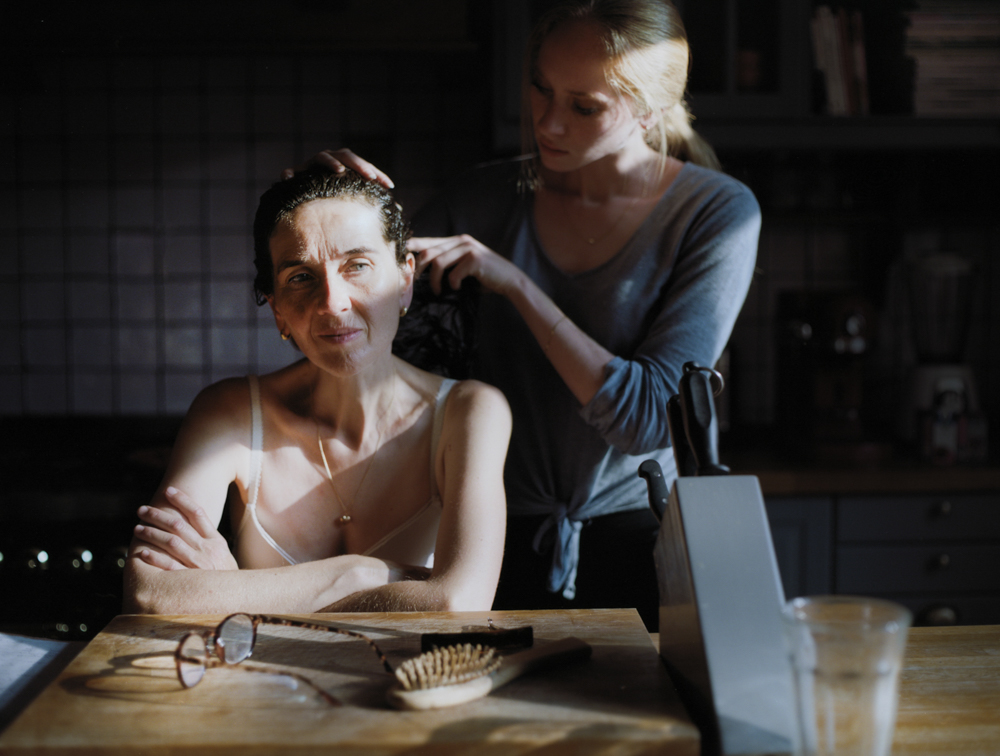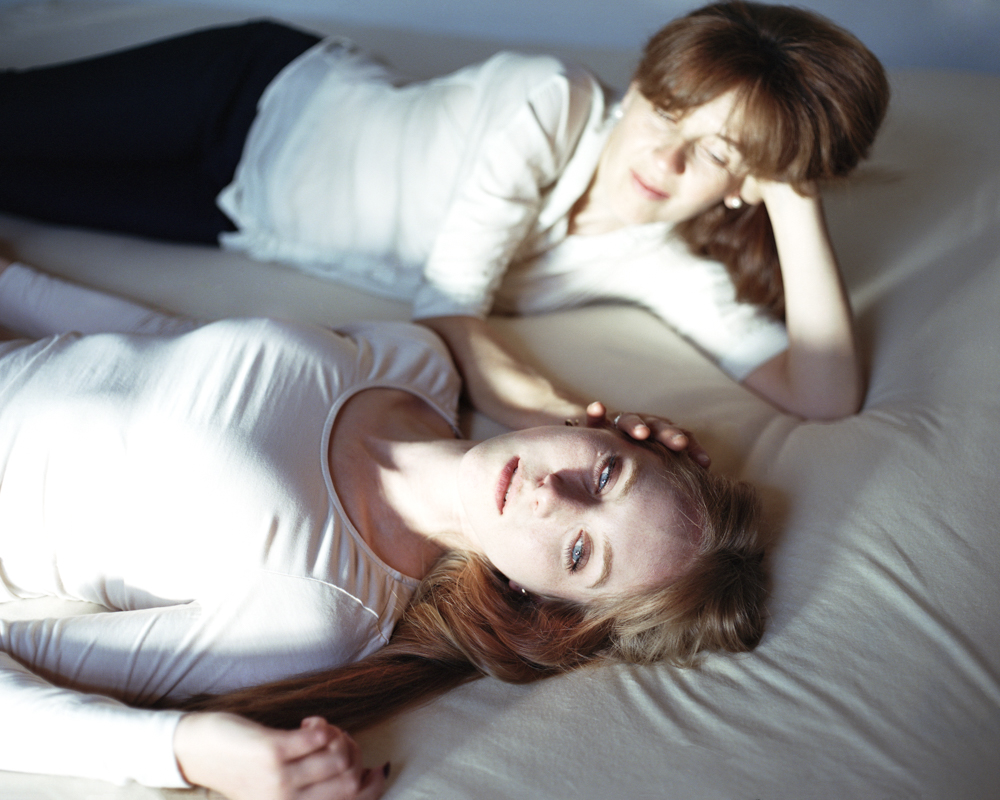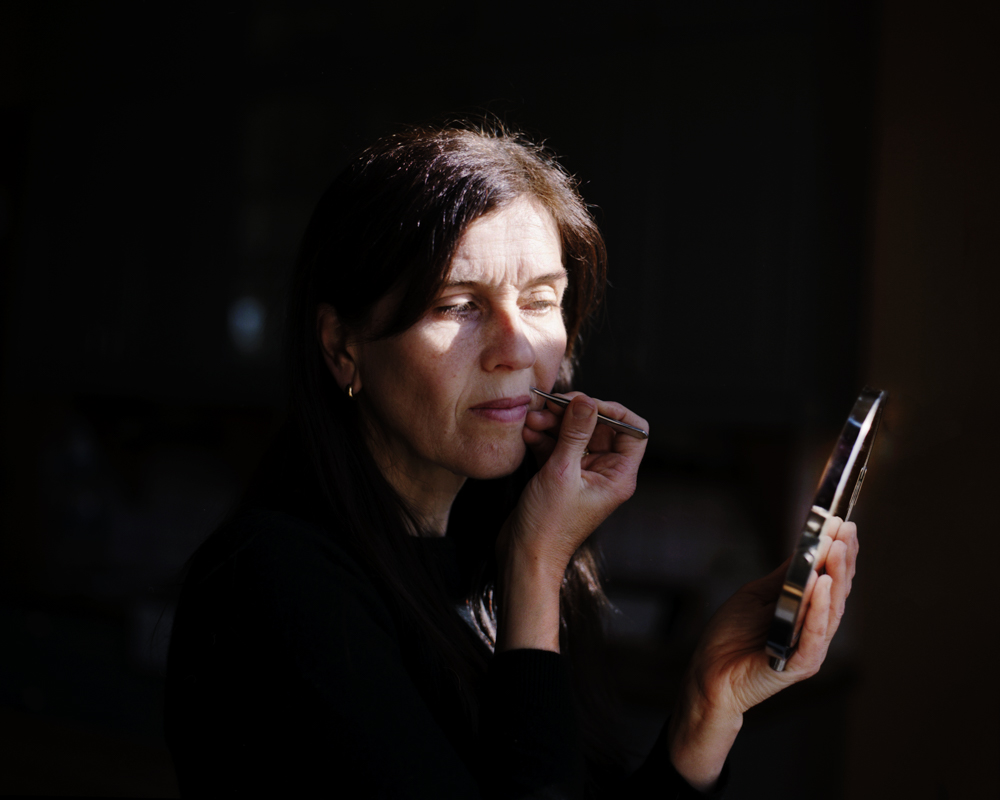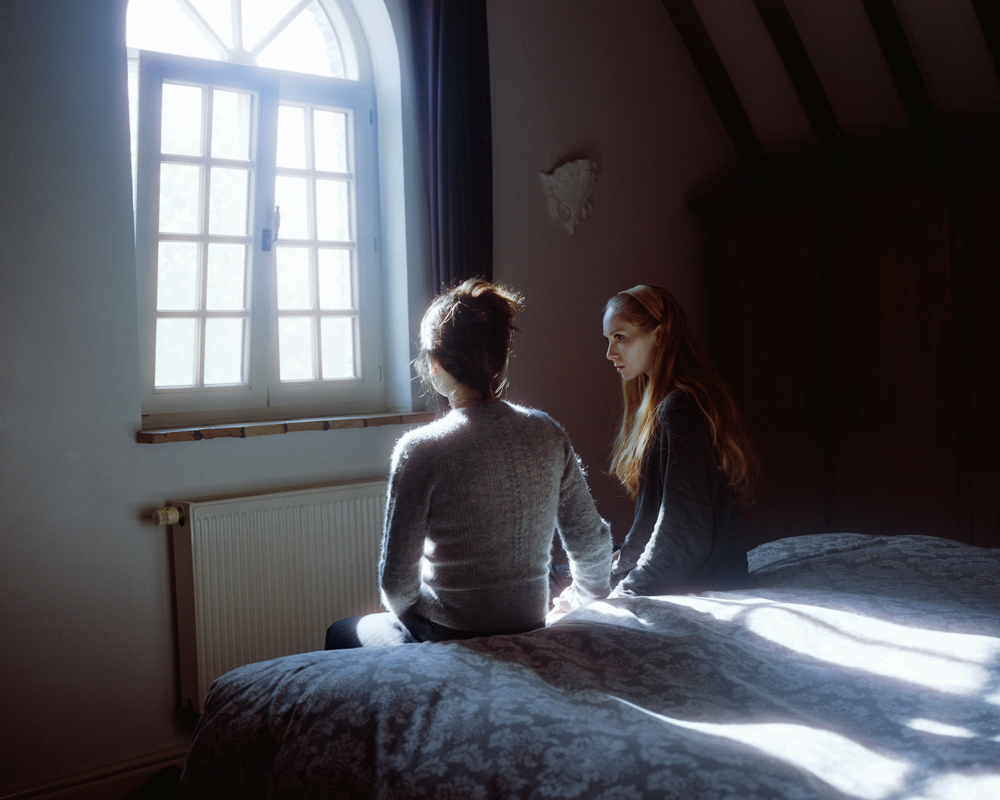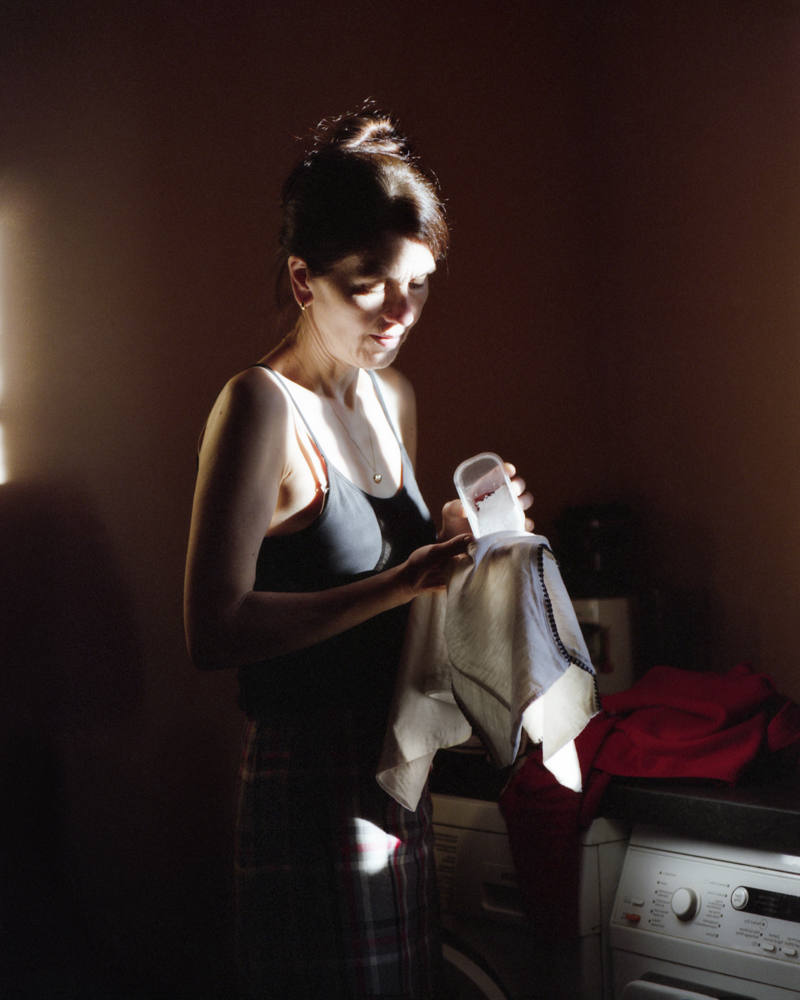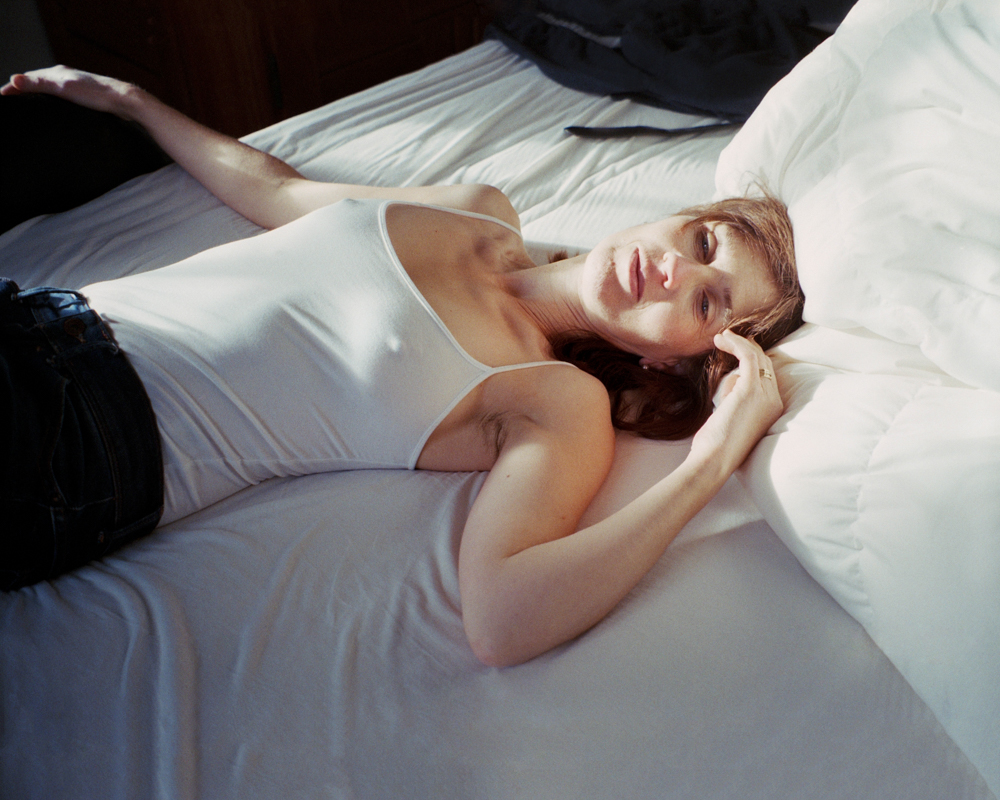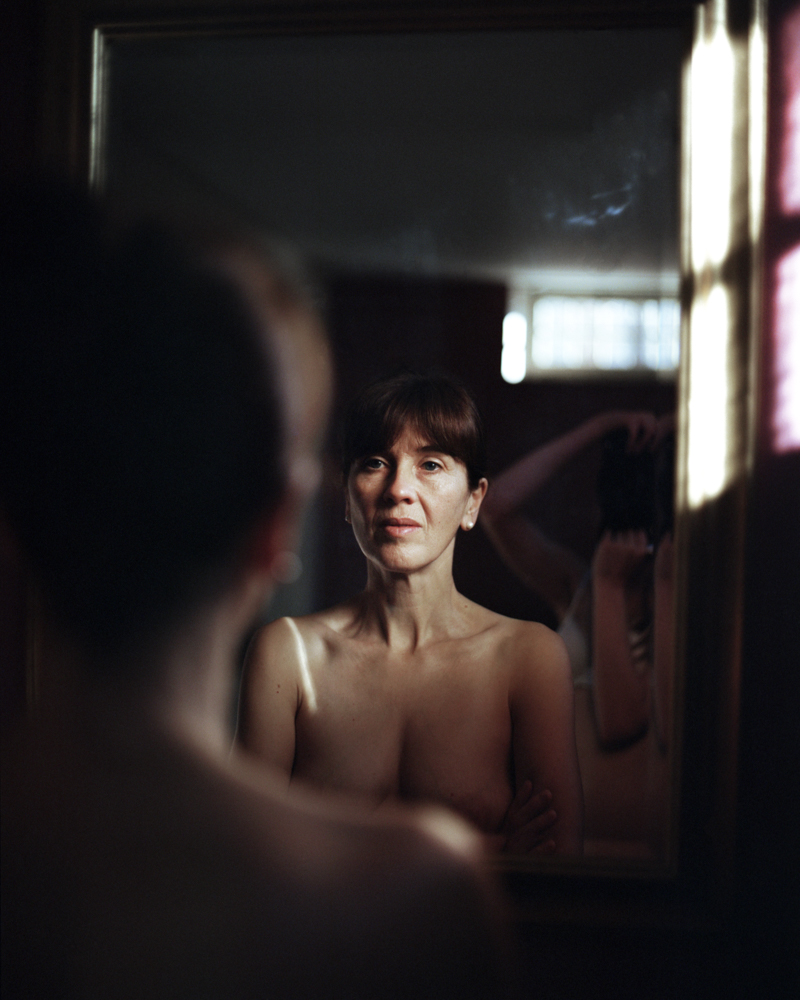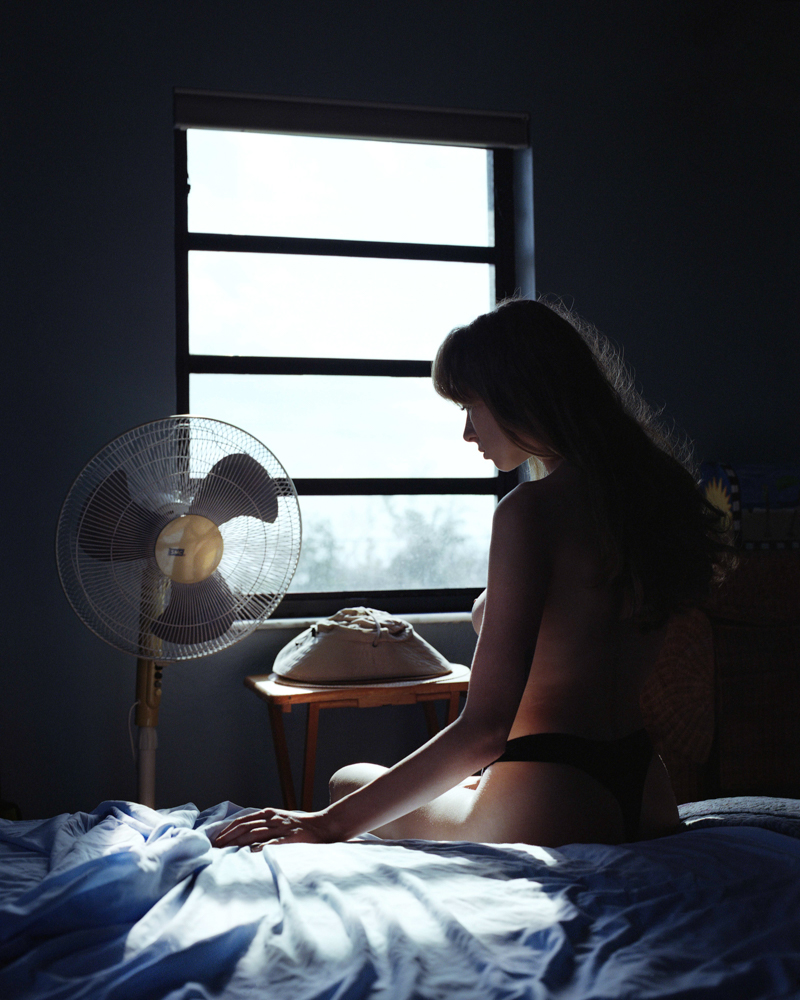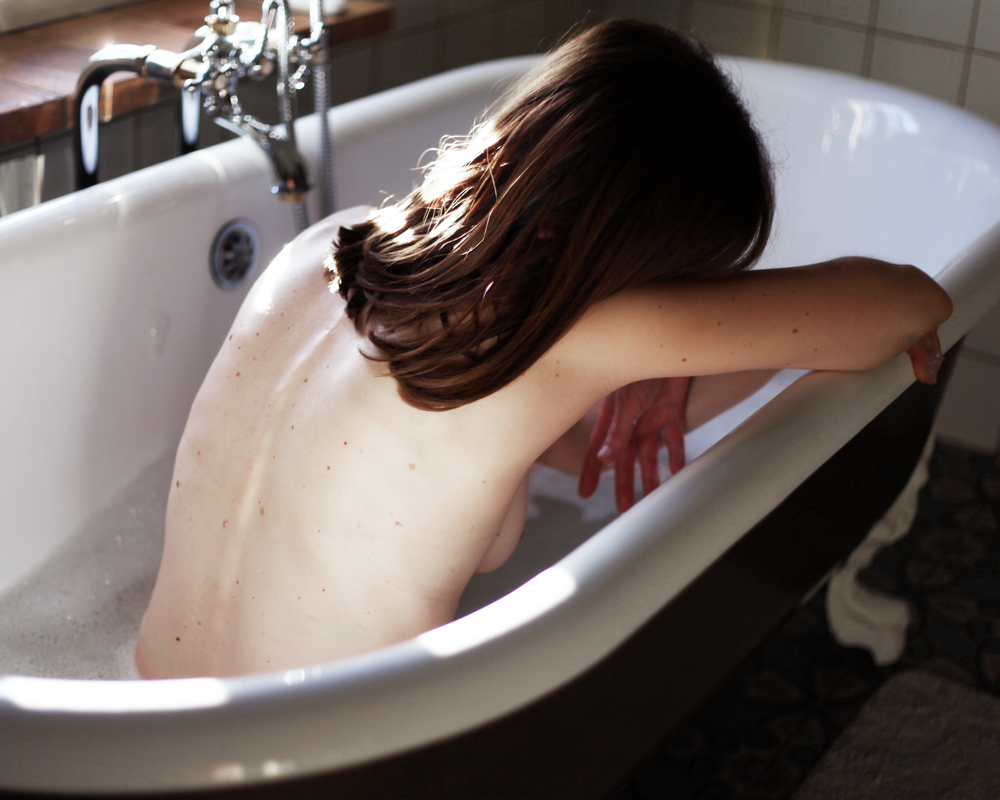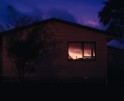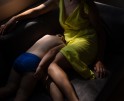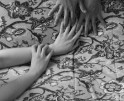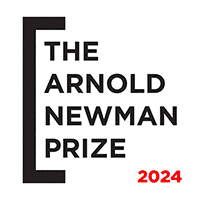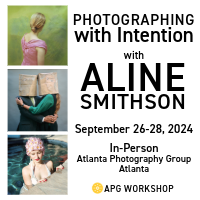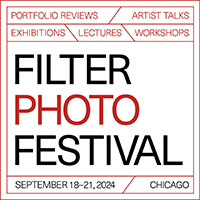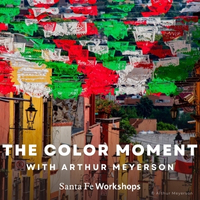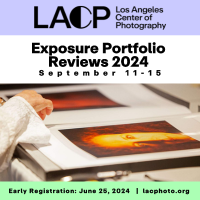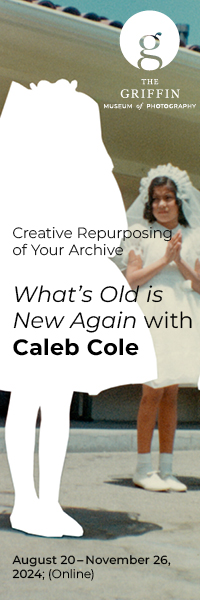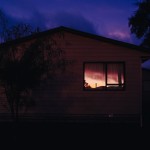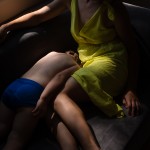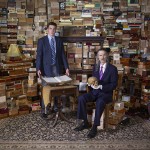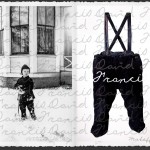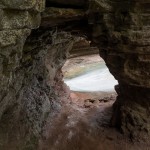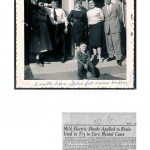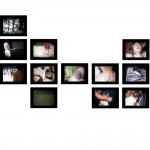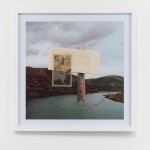Elise Corten: Warmer than the Sun
When asked to curate a week of posts leading up to Mother’s Day, I wanted to show artists whose work had not been shown before on Lenscratch. Because of my own endeavors and interest in family photographs, I chose artists whose work evolved from being a mother or a daughter.
I met Elise Corten as a fellow artist and participant at Revela’t 2022, a festival of contemporary analog photography in Villassar de Dalt, Barcelona, Spain. I was attracted to the quiet intimacy of her photographs with her mother in her project “Warmer than the Sun.”
Warmer than the Sun
This photographic series is a continuous process documenting my mother and the relationship I have with her. I try to show, through my photographic narrative, the dialogues, moments of intimacy and closeness with my subject. I use the camera as a pretext for redefining the maternal link. By drawing on her daily rituals, I look at my mother as she is – in other words a woman in her own right and not just a mother. The pictures show the desire that a mother has to reveal to her daughter, a photographer, the physical and emotional changes she is going through. The project is both personal and universal, exposing mother to daughter and daughter to mother and self to self. An intimate and sensual mother-daughter relationship is revealed through the succession of portraits and still life works. –Elise Corten
Elise Corten (b.1994) is a photographer based in Belgium. Elise’s practice primarily explores themes of intimacy, identity and memory through long term photo projects. In 2020 she received her MFA with honors from Luca School of Arts. Her work has been shown in various international exhibitions and publications such as Portrait of Humanity by British Journal of Photography, Helsinki Photo Festival, Israel Photo Festival and Hangar Photo Art Center among others.
Follow Elise Corten on Instagram: @elisecrtn
DD: Has your photography project changed your relationship with your mother in any way?
EC: The project has deepened our relationship and trust in each other. By making these photographs, I also created space for certain conversations about ageing, being a woman and motherhood. It also showed us the differences between us and how they create distance too. I feel that as we change, the images are changing too. Different family dynamics and structures change the way I look at the images now.
DD: Do your photographs flow from daily life? Or do you plan your sessions?
EC: It depends on the situation. Sometimes I see something happening and stop the person in their tracks. When I see a moment happening, I ask the person to pause and sit with the emotion of the moment. Sometimes I move some stuff around if it benefits the image. Generally I don’t set up too much and try to work with what the moment provides. I like going with the flow and seeing what comes up, and usually it’s better then an idea in my head. People can give so much of themselves during a portrait session, I can almost never anticipate the intensity of a session in advance.
DD: What questions are you most often asked about your work?
EC: “Why did you start photographing your mother?” I started photographing her because we are close and there was a certain openness to do so. I am in awe of her beauty and grace, it was only natural that I started to document it. After I had been making images of her for year or so, I realised that this work could become a project, and from there on it became a collaboration.
“Why do you photograph only one of your parents?” My father and I have a different relationship. I have photographed him before and made some interesting images, though these images are very different from the ones I have made of my mother, they miss some depth. Maybe I will start photographing him again but for now it’s not something I feel I need to do. I think as a daughter it’s easier to relate to the mother figure.
“What represents the nude in your work?” The nude stands for openness in my work. I feel like people are more honest when there’s nothing to hide behind. The nude body also symbolises strength and fragility at the same time, I like that contrast in the work.
“How do you keep being interested in photographing the same person over a long time?” I find it so interesting to study the little details and things in life that are easily overlooked. I am a sensitive person so I take in lot’s of information and nuances, photography helps me to process it all. The passing of time is what will make this project interesting, I think the work will be looked at differently in fifteen or more years. The photographic projects that fascinate me are usually bodies of work that show a long span of time passing. I hope to keep photographing my mother and myself to document the changes in our lives and the ageing process.
Deanna Dikeman has photographed her parents and relatives in Iowa and Nebraska for over 30 years. She was recently named a 2023 Guggenheim Fellow.
Instagram: @deannadikeman
Posts on Lenscratch may not be reproduced without the permission of the Lenscratch staff and the photographer.
Recommended
-
The 2024 Lenscratch 2nd Place Student Prize Winner: Ariana GomezJuly 23rd, 2024
-
One Year Later: Christian K. LeeJuly 20th, 2024
-
Anastasia Sierra and Carrie Usmar: Talking MotherhoodJuly 16th, 2024
-
From Altars to Alchemy: The Photography of Garin HornerJuly 8th, 2024
-
Chelsea Tan: before the light escapes us…July 7th, 2024

